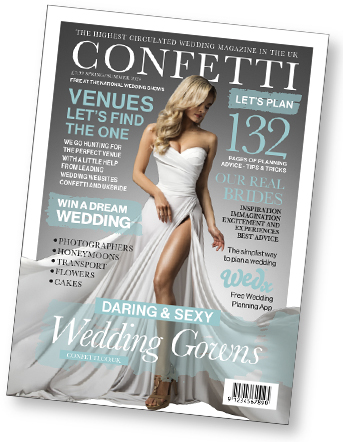Looking for something different to the civil ceremony? If a traditional church ceremony is too religious for you and a civil ceremony is not spiritual enough, consider an alternative Humanist ceremony which can be Buddhist or Pagan in its roots or simply comprise of everything that is important to you both. It won’t be legally binding so you will need to sign a marriage register as well if you want to be legally married, but you could have a ceremony with a special deeper meaning to you than the usual civil marriage ceremony.

Humanist
A Humanist wedding is not bound by legal restrictions, it can be exactly what you both want it to be. There are no rules or scripts, it is your choice where you hold your ceremony and how it is conducted. You may want to make vows to each other in a field or by the sea for instance. A Humanist celebrant will oversee the ceremony or you could simply ask a friend or relative to do so. You set the tone and can decide to exchange rings, have music or exchange vows as you wish. There are no rules to a Humanist ceremony, it is more personal and a lot more flexible than a civil or religious ceremony.

Pagan
The Pagan wedding ceremony is known as a handfasting and the couple’s hands will be tied together to symbolise their closeness and togetherness. What is different about a Pagan wedding is that the couple will swear oaths to each other that have been discussed beforehand and are entirely personal to that the individuals rather than repeating a standardised formula that other couples will say. So while each couple will vow to love, honour, respect and protect each other and their family, ultimately the responsibility of the committed relationship they are undertaking lies with them.
The ceremony is usually held outside, and begins with the marking out of a sacred space, in the shape of a circle. The handfasting refers to the couples’ right hands being bound together as they swear the oaths. Their hands will then be to further symbolise that they will remain together of their own free will.

Buddhist
There is no set wedding service or set format in the Buddhist faith, as the Buddha (founder of the religion) did not consider marriage to be a sacred ceremony. Instead, marriage is considered a social rather than religious occasion.
The Buddha stated only that marriage should be based on deep mutual respect between partners and that it should be a partnership of equals (a remarkably progressive standpoint, bearing in mind the low status of women in India at the time). Buddhists can marry anyone from any religion and their union should be a harmonious blend of the differing strengths and abilities of both partners.
A Buddhist marriage ceremony is secular in nature and takes place in a register office or one of the few Buddhist temples licensed as a legal marriage venue such as the London Buddhist Vihara.

Writing your own marriage vows and having a deeply personal ceremony is a choice many couples make and an opportunity to make your wedding truly unique to you in the most important way.

